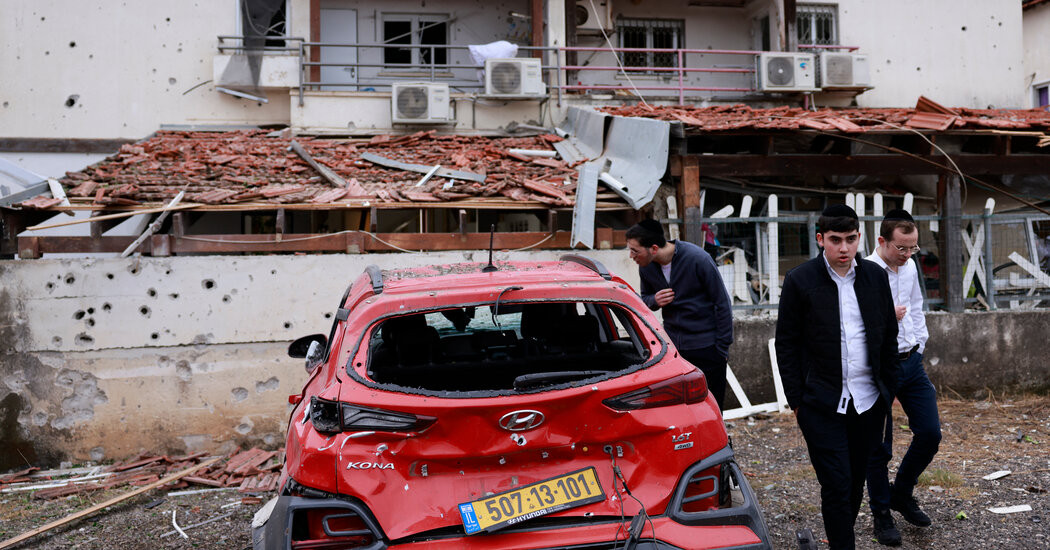

The waves of attacks on Sunday came amid diplomatic efforts to reach a cease-fire in the conflict.
Hezbollah fired about 250 projectiles into Israel on Sunday, a day after an Israeli strike in the heart of the Lebanese capital killed more than 25 people.
The aerial attack was one of the largest Hezbollah has mounted against Israel since the Lebanese militant group started firing on Israel last year in solidarity with Hamas in Gaza. It also coincided with a flurry of diplomacy aimed at halting the intensifying fighting in Lebanon.
More than 65 people were wounded in the attack on Saturday in Lebanon’s capital, Beirut. As rescuers searched through the rubble, the death toll rose on Sunday to at least 29 people, according to Lebanon’s Health Ministry. Three Israeli defense officials said the strike was an attempt to assassinate a top Hezbollah military commander, Mohammad Haidar. One of the Israeli defense officials, who requested anonymity to discuss sensitive military operations, later said that Mr. Haidar was not killed.
On Sunday, waves of air raid sirens blared throughout much of Israel, including in the Tel Aviv area and the hilltop town of Safed. Israel’s military said that around 250 projectiles — a term usually referring to rockets — had been launched as of the evening, and that some were intercepted by air defense systems.
Magen David Adom, an Israeli emergency rescue service, said it had treated at least six people with injuries. It also shared images of cars engulfed by fires in central Israel.
Hezbollah said it had fired several salvos of rockets at Israel on Sunday.
The militant group said that one of the salvos — which it said had targeted a military installation in Tel Aviv around 6:30 a.m. — was in response to Israel’s targeting of Beirut. The Israeli military did not report an attack aimed at Tel Aviv around that time, and The New York Times was not able to independently verify the claim by Hezbollah.